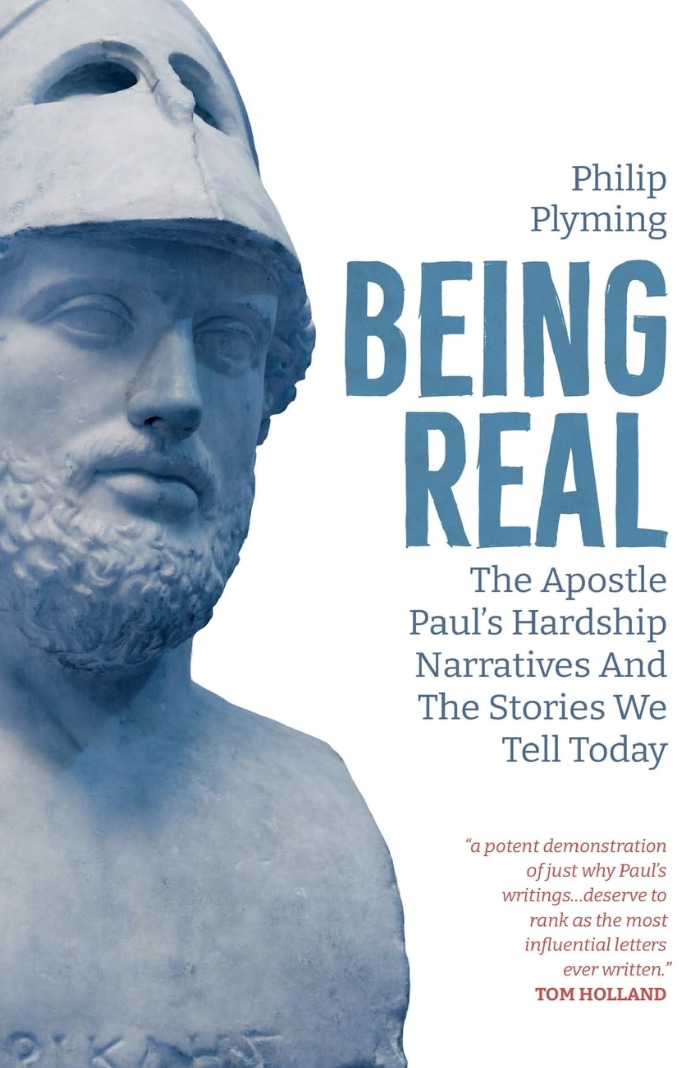Everybody desires to be worthy of an autobiography or biography at the end of life. Social media is the way to write one now. Families, friends, and community’s live on their stories. History is storytelling. Our stories used to be known almost entirely only to those we were with and around. Today the stage has increased dramatically because of social media.
How to write our stories on social media in a way that is Christian? That’s the subject of two chapters in Philip Plyming’s Being Real: The Apostle Paul’s Hardship Narratives and the Stories We Tell Today.
Let this be emphasized: we now have a stage. The whole world can watch us on the “front stage.” We can both construct and curate our own stories. We can create the impression we want others to have of us. The Front Stage is our performance – daily, all day long, occasionally – in front of the world on FB, Threads, Instagram, and X (and others). In fact, as Plyming says of a young adult he knows, “I've lived my whole life online.”
In today’s Front Stage many have brought forward what used to be private, what was seen only by close friends and associates in Back Stage. Plyming’s right here: this provides a false sense of intimacy. But once again, it's a curated sense of intimacy. And the biggest issue is that social media has “given us a bigger stage, a bigger audience, and a theater that is open 24/7.” As I read this chp I was drawn over and over into self-reflection about the temptations of social media. The challenge Plyming offers is pondering what stories to share. What’s appropriate? What’s Christian?
The issue is that the social media platforms are now a culture of presenting a “positive impression” of ourselves. Here's a real helpful set of categories of how those impressions are framed:
First, ingratiation: “the art of getting others to like us, to hold a favorable impression of us as we appear on our front stage.”
Second, intimidation: “the art of getting others … to fear us” by way of comparison. “My kids all got straight A’s” leads to “That mother is impressive. I don’t stack up.”
Third, self-promotion. This one hits the bone for us who are authors because our publishers want us to market and promote our own books. And there is only a fine line between saying what we need to say and saying more than what we need to say. I just had a new book arrive at my doorstep this weekend — do I keep it to myself or do I post it on social media?
Fourth, exemplification: the art of being “seen as worthy and having integrity.” In other words, virtue signaling and grandstanding.
Fifth, supplication: the art of framing “one 's dependence in order to get others to offer help” and resources.
The big ones that Plyming sees most on social media are self-promotion and ingratiation.
Another major idea about social media and telling our own stories is the desire to present to others our happiness and our great we are doing. We are summoned to present a positive image of ourselves. I love this one: “everybody wants an autobiography at the end of their life, a bestseller and [My Story] is a way to do it now.” So so so true. If we could but wait we’d learn our story is, like the rest of the billions of earth’s inhabitants, quite ordinary even if we are special to some and to God. The drawing power of social media remains happiness, perfection and positivity.”
The Christian tradition, especially in the evangelical movement, has nurtured and Ben sustained by a story called “the personal testimony.” Plyming finds three elements to it: (1) the pre-Christ negative life, ramped up as much as possible for rhetorical interest; (2) meeting Christ; and (3) the with-Christ positives and transformations. So from the days of Augustine on we have learned to curate our own personal testimony in a way that brings pleasure and applause from the Christian audience.
Personal testimony aside, the author makes it very clear that Christians have been captured by the genre of social media connected to self-promotion and ingratiation. Let me call it “Babylon.”
Some of those, like Donna Freitas, who study social media academically, have discovered that actually in the Christian tradition there has often been an adjustment in how Christians operate on social media. Language like glorifying God has filtered into social media.






So good. The challenge is that "why" people do this can vary based on personality, family history, etc..., so time for deep reflection regarding motives is needed to help move in a healthy direction. That process is peeling back the layers as one looks deeper, so it probably will take some time, silence, solitude, and probably a lot of prayer. Unfortunately, social media (technology in general) can be such a distraction that it often inhibits that process.
Thank you Scott. I needed to look at my habits on the social media platform/stage .